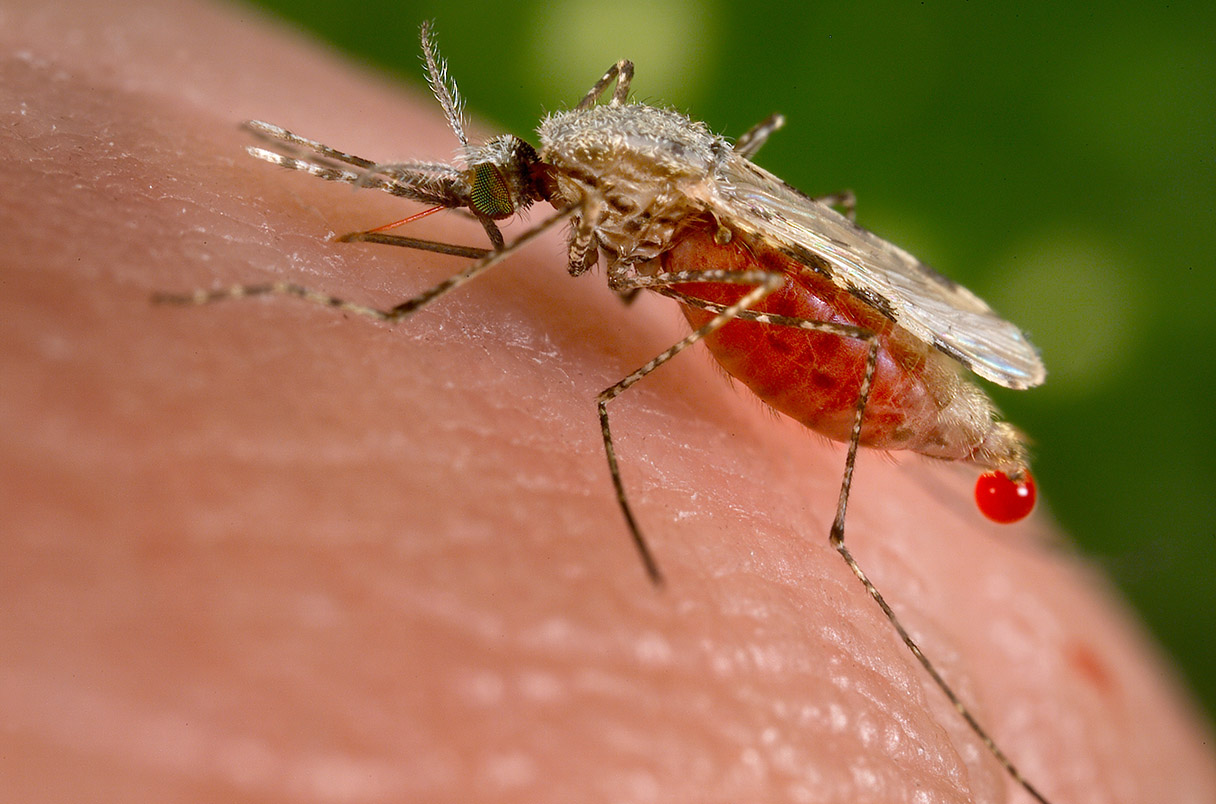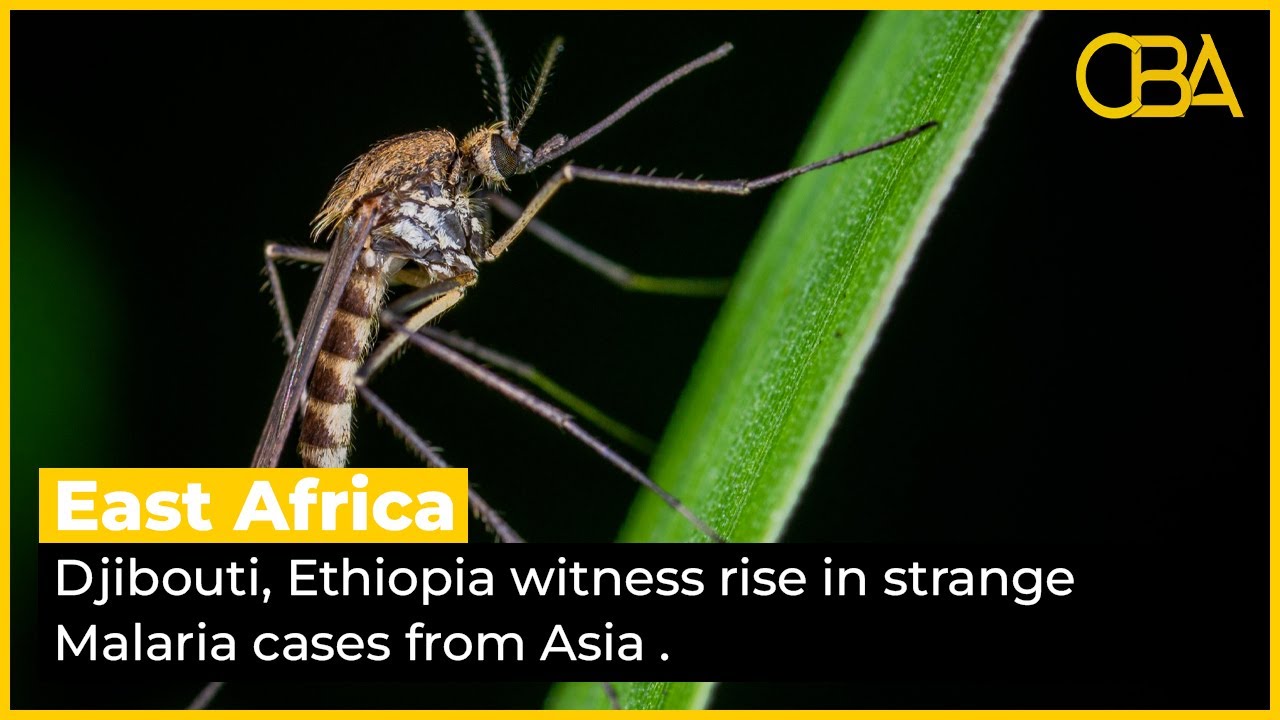Invasive Asian Mosquito Linked To Major Malaria Outbreak In Ethiopia, Study Finds
More than 2,400 individuals were ill with malaria in Dire Dawa, Ethiopia, in the first quarter of 2022. Scientists have found invasive Asian mosquito linked to major malaria outbreak in Ethiopia. The research, which was presented on November 1 in Seattle at the annual conference of the American Society of Tropical Medicine and Hygiene, shows that the invading vector is capable of fueling malarial epidemics. The species' ability to thrive in human-dominated areas is cause for concern since it might expose millions more Africans to malaria.
Author:Karan EmeryReviewer:Daniel JamesNov 04, 202223.3K Shares333.3K Views

More than 2,400 individuals were ill with malaria in Dire Dawa, Ethiopia, in the first quarter of 2022. Scientists have found invasive Asian mosquito linked to major malaria outbreak in Ethiopia.
The research, which was presented on November 1 in Seattle at the annual conference of the American Society of Tropical Medicine and Hygiene, shows that the invading vector is capable of fueling malarial epidemics. The species' ability to thrive in human-dominated areas is cause for concern since it might expose millions more Africans to malaria.
Dire Dawa, Ethiopia, had a dramatic increase in instances during the dry season this year, and the mosquito was found to be the likely culprit. According to experts, this is the most compelling proof that it might lead to malaria outbreaks in locations where the illness is normally uncommon.
Even though it has a population of over 500,000, the eastern city is not typically a malaria hotspot, with just 205 cases recorded in 2019. However, between January and May of this year, when rainfall were spotty and infections were predicted to be low, there were roughly 2,400 cases.
Anopheles Stephensi Transmit Malaria
An exotic malaria epidemic in Ethiopia has been blamed on an alien mosquito species, according to researchers. The southern Asian Anopheles stephensimosquito was discovered in Africa for the first time ten years ago in the Republic of Djibouti, which shares a border with Ethiopia. At this point, at least four other nations in sub-Saharan Africa have reported cases.
Now, researchers have found that persons afflicted during a rare dry season epidemic of the illness were more likely to have the mosquito residing near their houses, despite continuing uncertainties about whether the insect's presence is substantially increasing occurrences of malaria across the continent. Unlike other African mosquitoes that transmit malaria parasites, Anopheles stephensiprefers urban environments.
While the majority of African mosquitoes prefer natural water sources like puddles during the rainy season, this species does very well in man-made containers like cisterns and barrels. Because of this, the bug may continue its life cycle even during dry seasons, which are usually free from the disease's effects.
Malaria cases increased about the same time that Anopheles stephensiwas discovered, both in Djbouti and elsewhere, although it was unclear if the newly discovered mosquito was to blame or whether other causes were at play.
With the help of his colleagues, molecular biologist Fitsum Tadesse of the Armauer Hansen Research Institute in Addis Ababa, Ethiopia, monitored malaria cases in Dire Dawa, an eastern Ethiopian city that saw a significant outbreak earlier this year, to better understand the role of the invasive insect. The city had just 205 total instances in 2019. More than 2400 cases were reported in the first half of this year in Dire Dawa.
Researchers Tadesse and his team compared the health of the household members of 210 persons who did not have malaria to that of the households of 80 people who did have malaria. Household contacts of malaria patients were found to be 5.6% more likely to get the disease than controls.
Their findings, presented today at the ASTMH conference, show that families with malaria cases were more likely than control households to have mosquito breeding sites within 100 meters of their dwellings. Anopheles stephensiaccounted for 97 percent of all adult mosquitoes caught.
According to Marianne Sinka, an entomologist at the University of Oxford who studies malaria-transmitting mosquitoes but was not involved in the research, the discovery is a crucial proof that Anopheles stephensiis responsible for the abrupt surge in malaria cases.

Djibouti, Ethiopia witness rise in strange Malaria cases from Asia
How Does Anopheles Stephensi Spread?
A. Tadesse claims that S. stephensiprefers to reproduce in water storage containers that are often frequent in rapidly increasing metropolitan areas. Since Anopheles stephensiis growing, there is cause for alarm. As cities grow all over Africa and give mosquitoes access to many new water sources, the mosquito population could grow very quickly.
Teun Bousema, an epidemiologist at Radboud University in Nijmegen, the Netherlands, says that this makes malaria less of a problem in the countryside and more of a problem in the cities. In 2020, another research team calculated that 126 million urban dwellers may be in danger of catching malaria if the invasive mosquito were to spread widely over the continent.
“„The expansion of Anopheles stephensiis worrying since this species has a variety of traits that make it difficult to manage. The female insects can lay their eggs almost everywhere there is water, and the eggs can withstand extended periods of drying out. Malaria vectors hardly ever behave like this.- Tanya Russell, James Cook University in Townsville, Australia
Russell explains that insecticide-treated bed nets and indoor spraying with a residual pesticide are the two most common methods of reducing the population of malaria-carrying mosquitoes. On the other hand, ever since Anopheles stephensicould possibly spread to humans through mosquito bites outside, these measures may not work.
Next, Tadesse says that communities should be told to cover and protect water containers so that mosquitoes don't lay eggs in them, and that insecticides should be used to kill the insects when they are in their larval stage.
“„Time is running out to save this species, I believe extremely urgent action is required.- Bousema, Radboud University in Nijmegen, Netherlands
Final Words
Spread of Malaria is due to the fact that more than 40% of the Africa's population resides in urban areas. In 2020, malaria killed about 627,000 people, most of whom were children under the age of five. About 96% of these deaths happened in sub-Saharan Africa.

Karan Emery
Author
Karan Emery, an accomplished researcher and leader in health sciences, biotechnology, and pharmaceuticals, brings over two decades of experience to the table. Holding a Ph.D. in Pharmaceutical Sciences from Stanford University, Karan's credentials underscore her authority in the field.
With a track record of groundbreaking research and numerous peer-reviewed publications in prestigious journals, Karan's expertise is widely recognized in the scientific community.
Her writing style is characterized by its clarity and meticulous attention to detail, making complex scientific concepts accessible to a broad audience. Apart from her professional endeavors, Karan enjoys cooking, learning about different cultures and languages, watching documentaries, and visiting historical landmarks.
Committed to advancing knowledge and improving health outcomes, Karan Emery continues to make significant contributions to the fields of health, biotechnology, and pharmaceuticals.

Daniel James
Reviewer
Daniel James is a distinguished gerontologist, author, and professional coach known for his expertise in health and aging.
With degrees from Georgia Tech and UCLA, including a diploma in gerontology from the University of Boston, Daniel brings over 15 years of experience to his work.
His credentials also include a Professional Coaching Certification, enhancing his credibility in personal development and well-being.
In his free time, Daniel is an avid runner and tennis player, passionate about fitness, wellness, and staying active.
His commitment to improving lives through health education and coaching reflects his passion and dedication in both professional and personal endeavors.
Latest Articles
Popular Articles